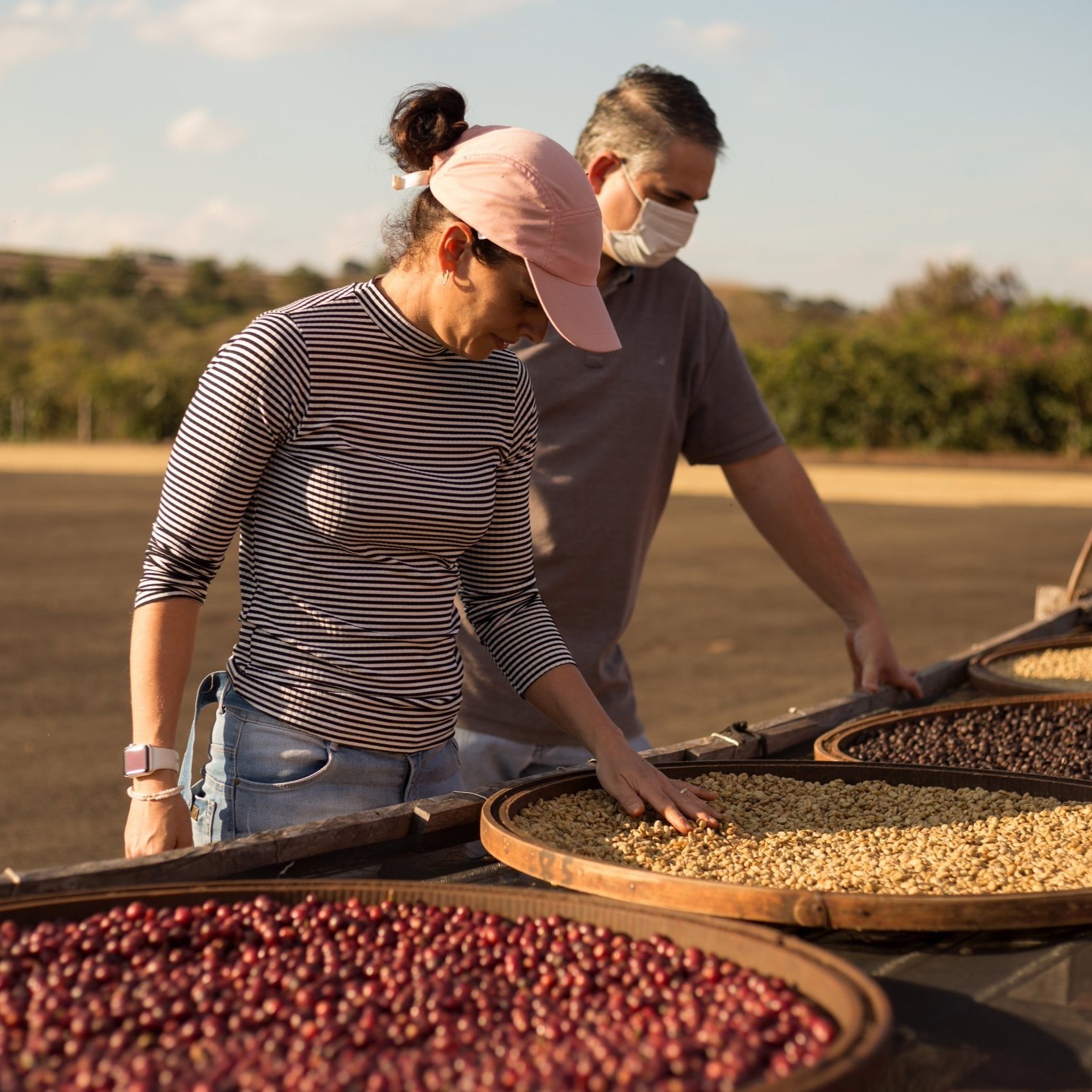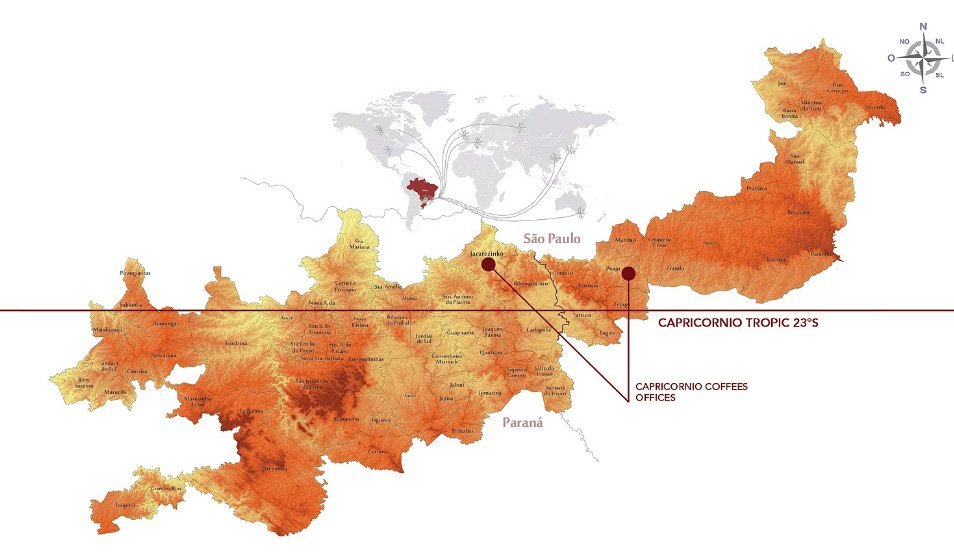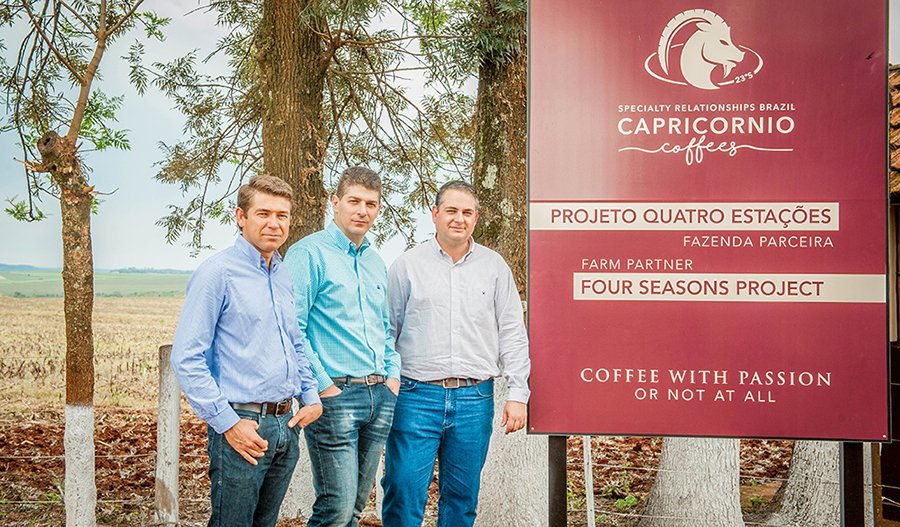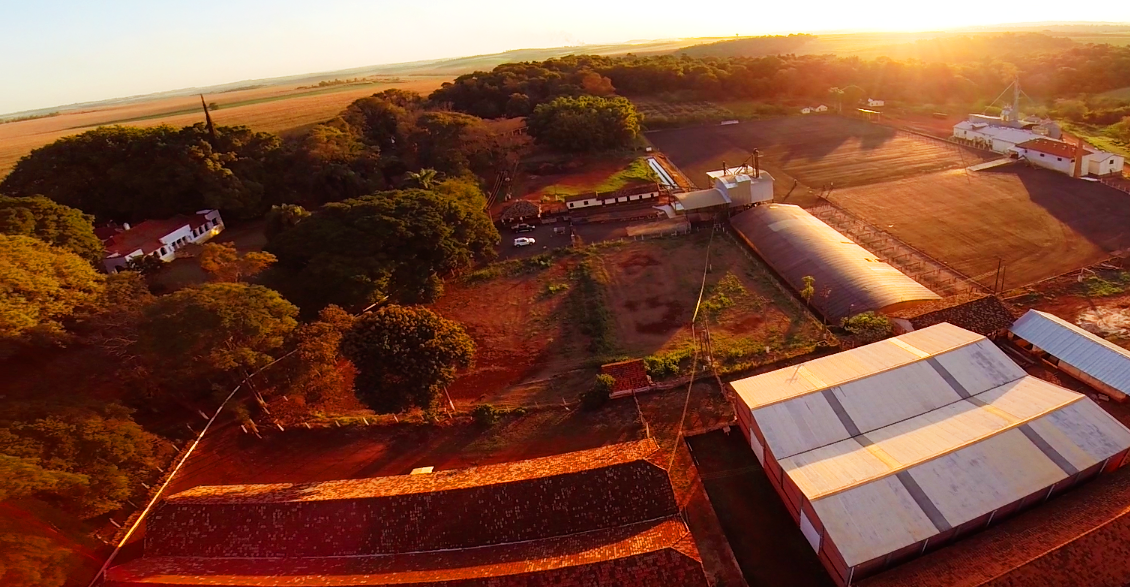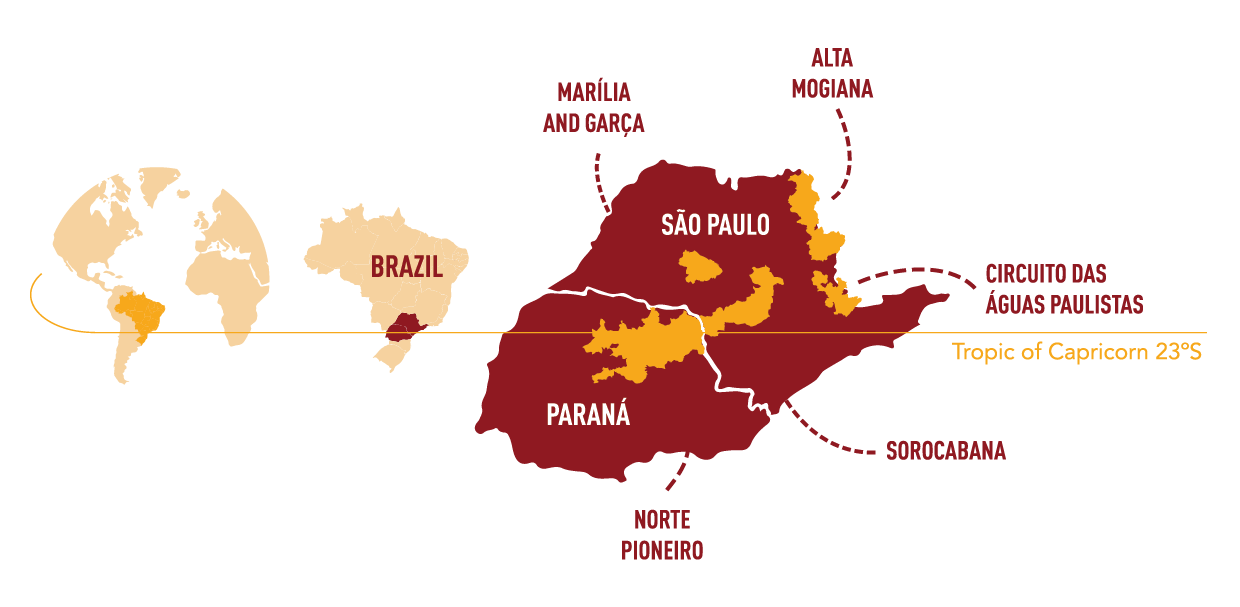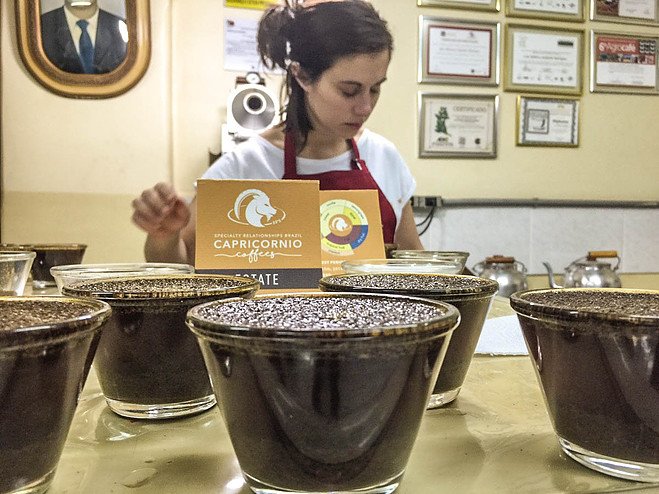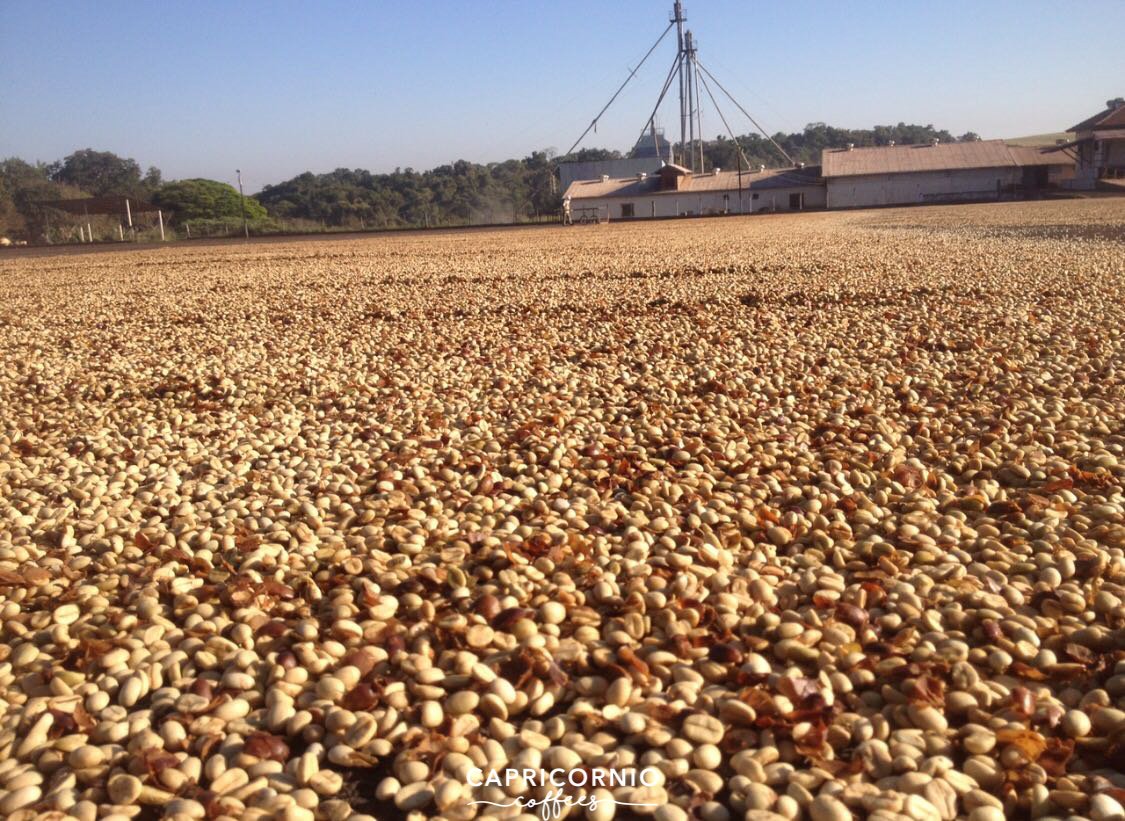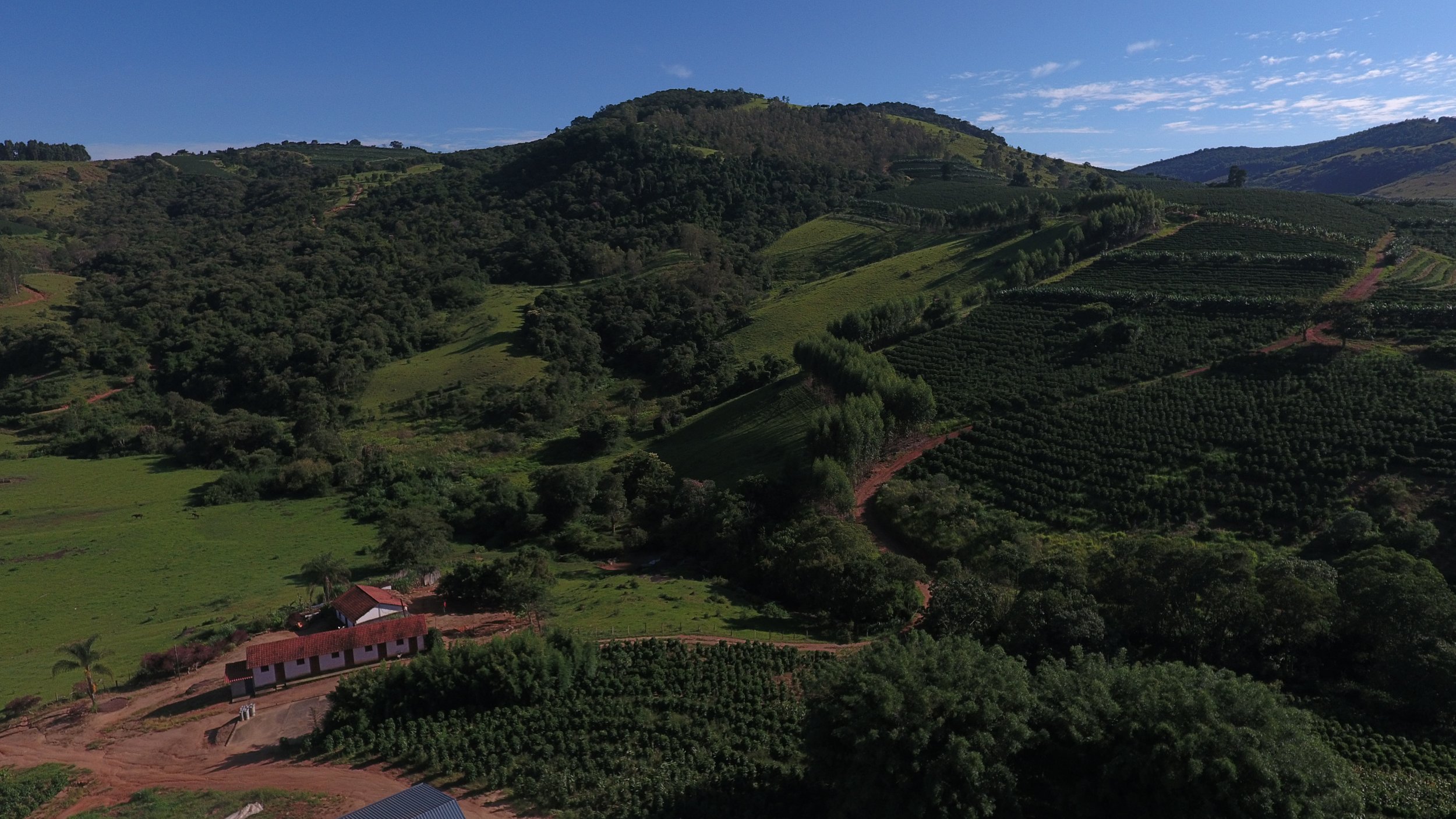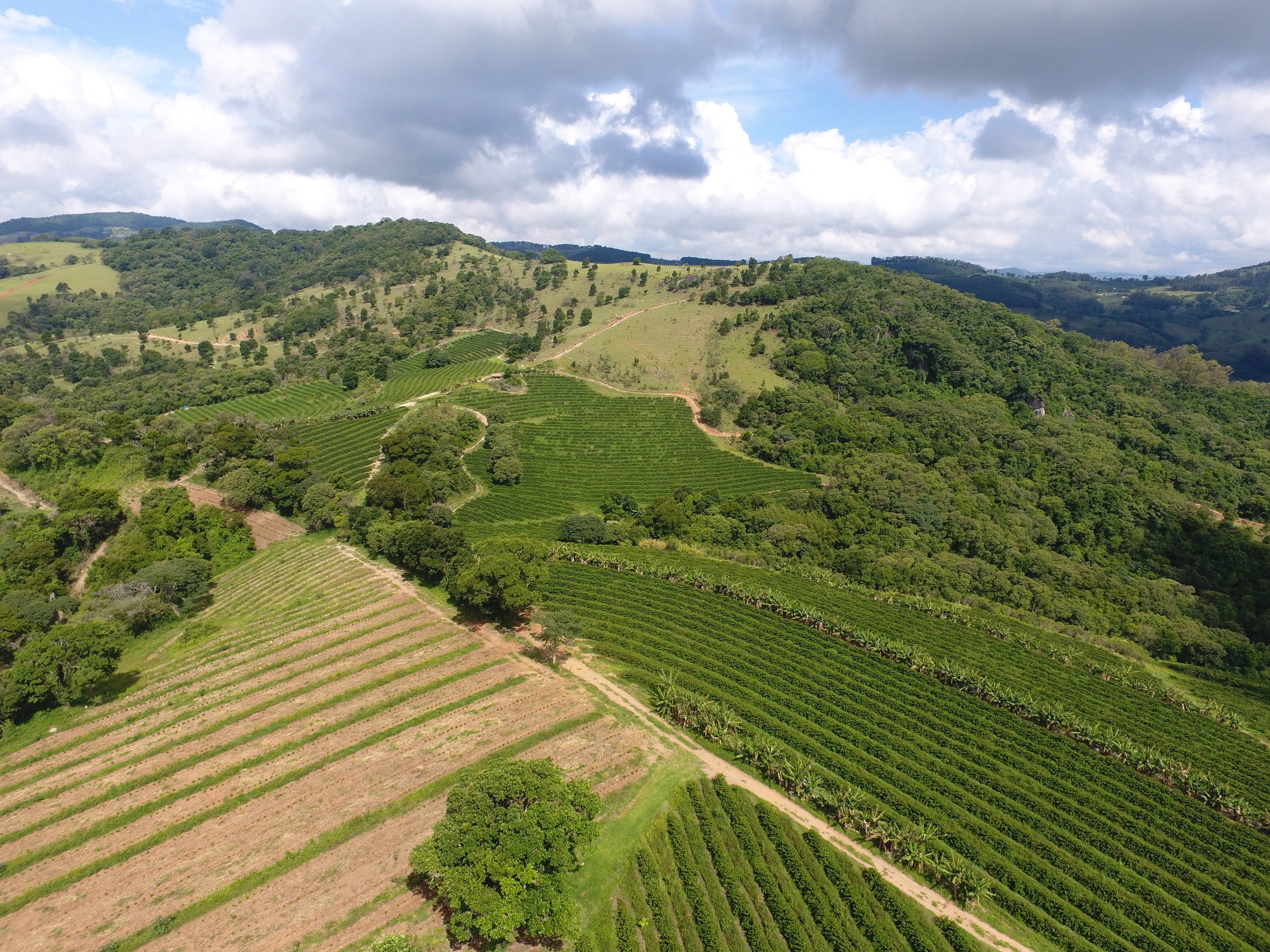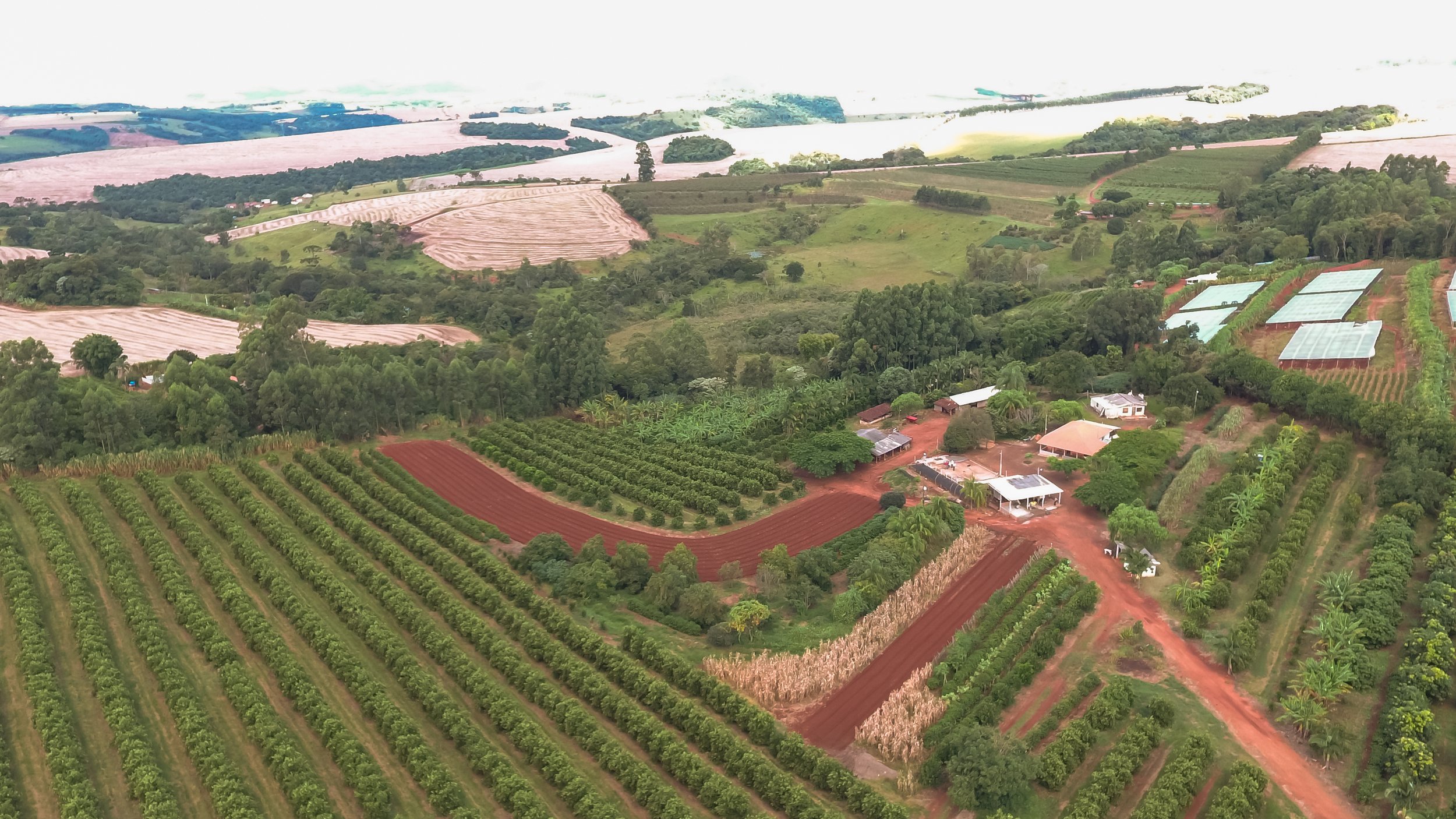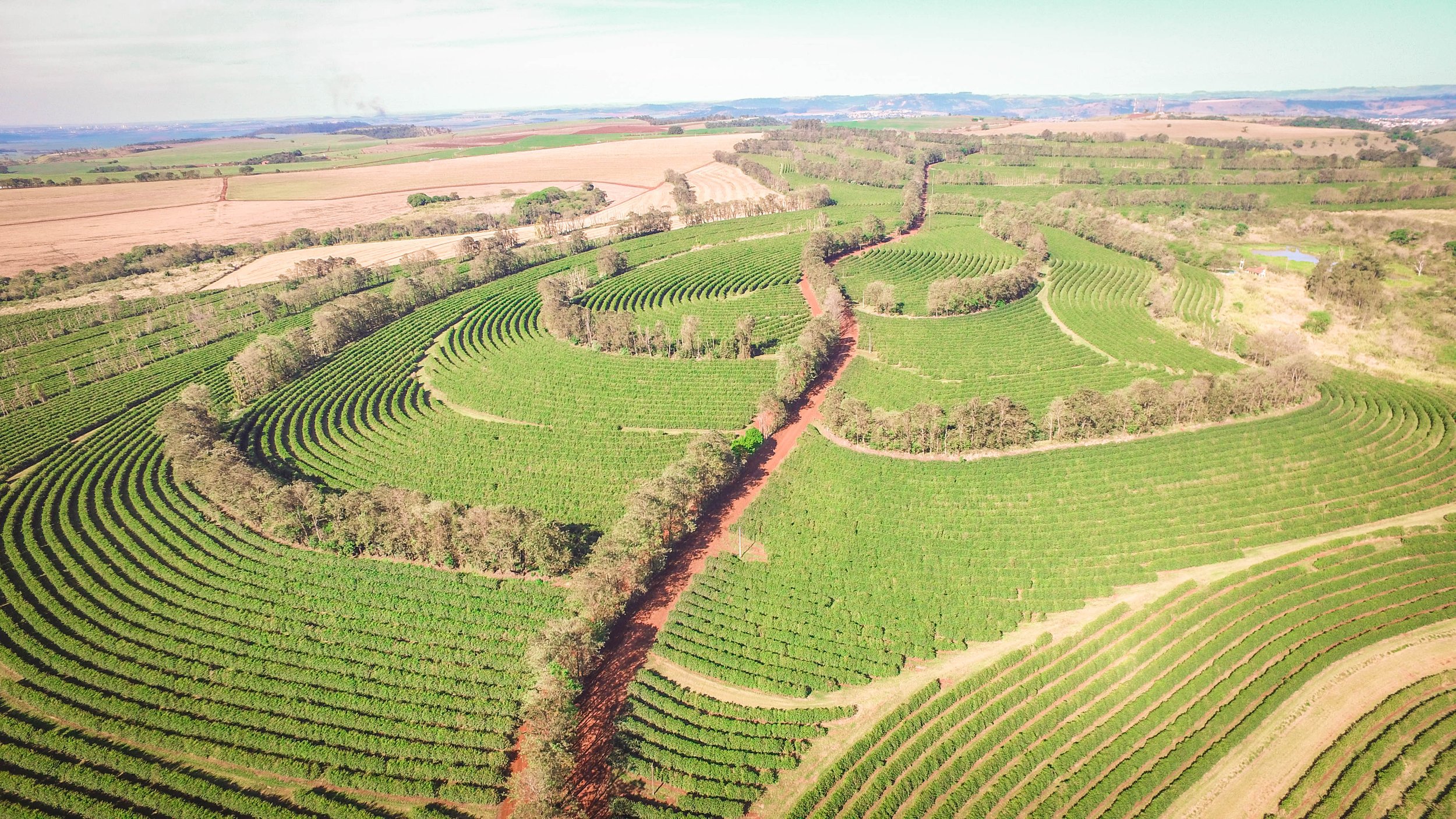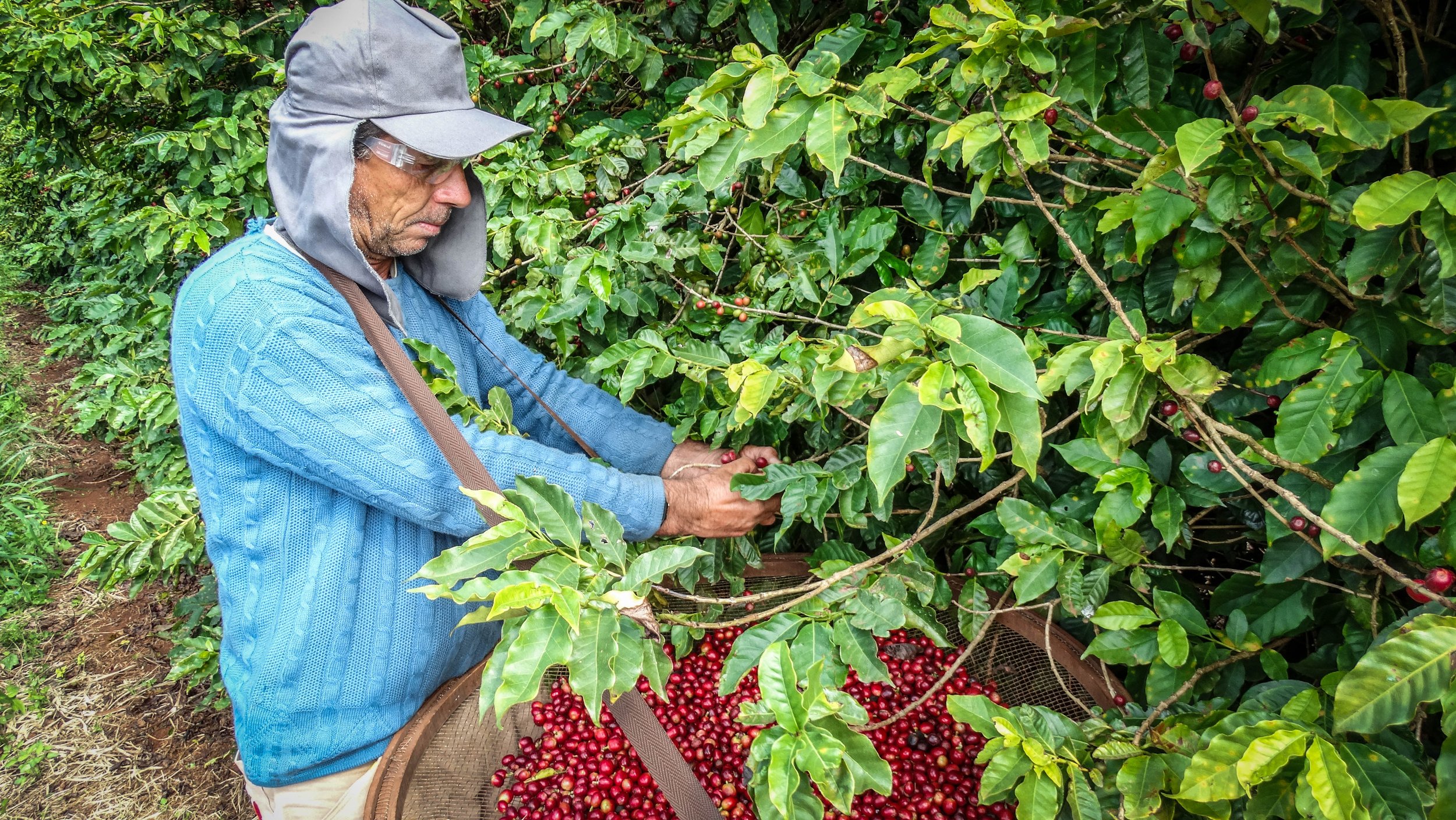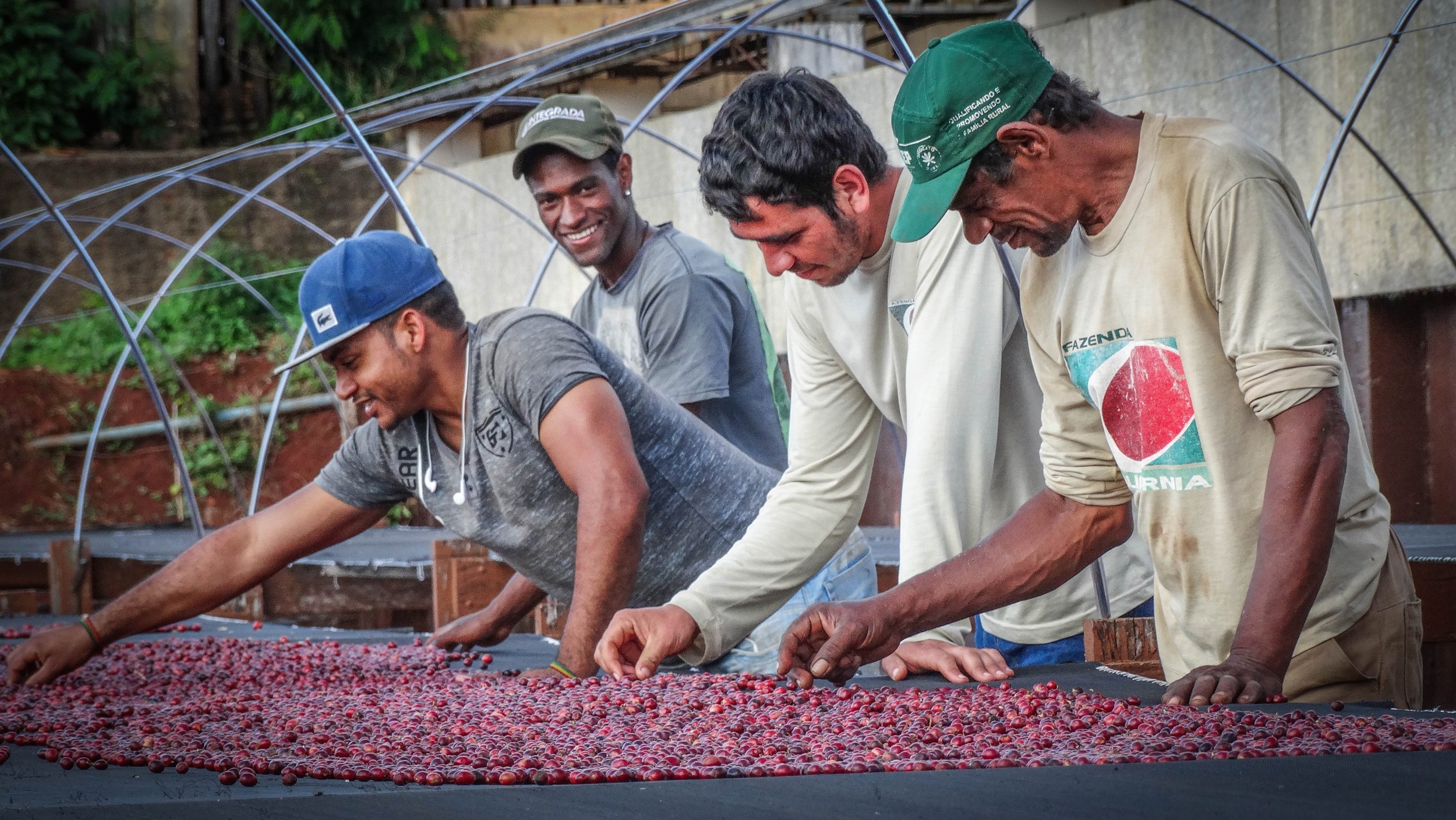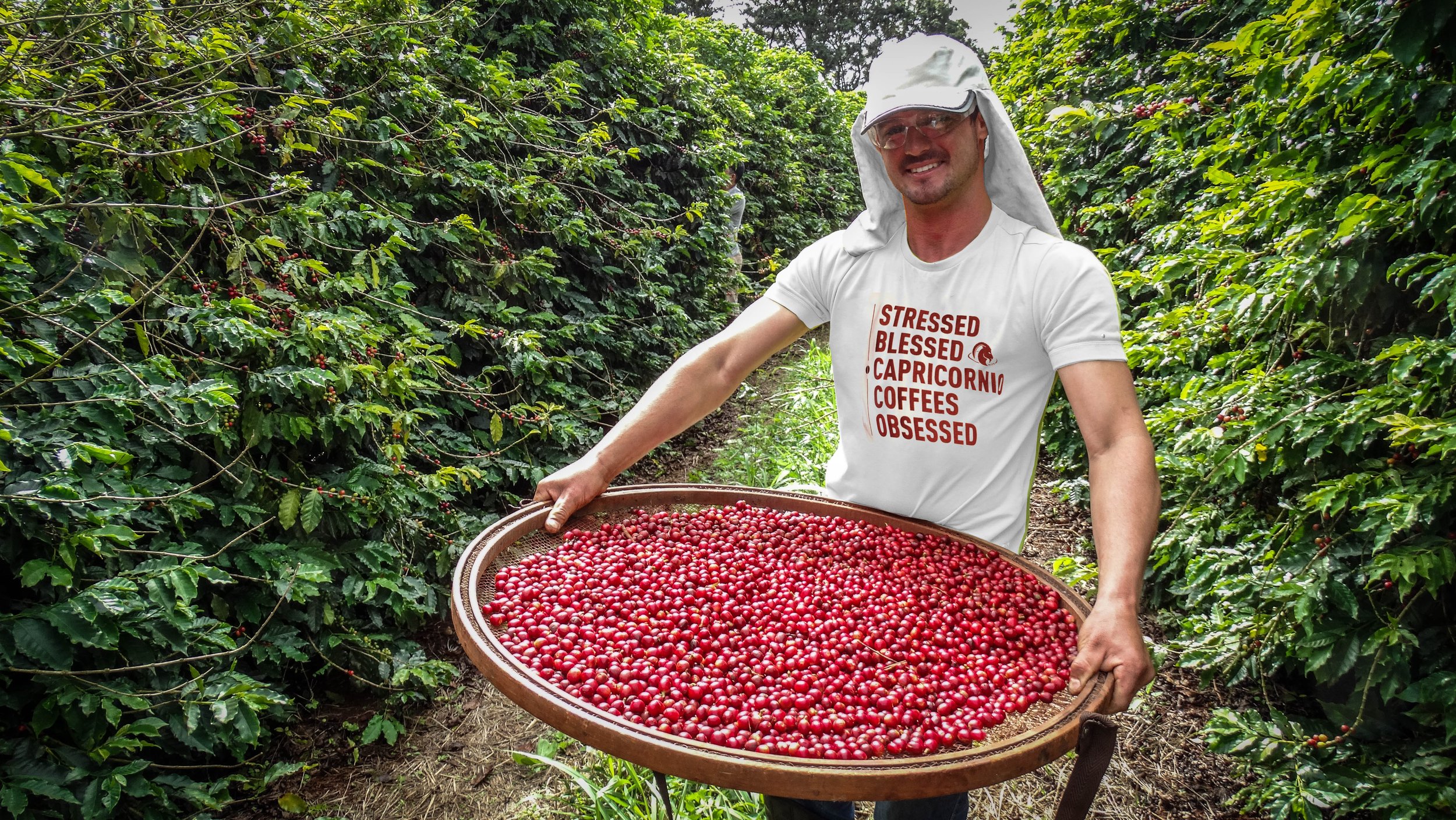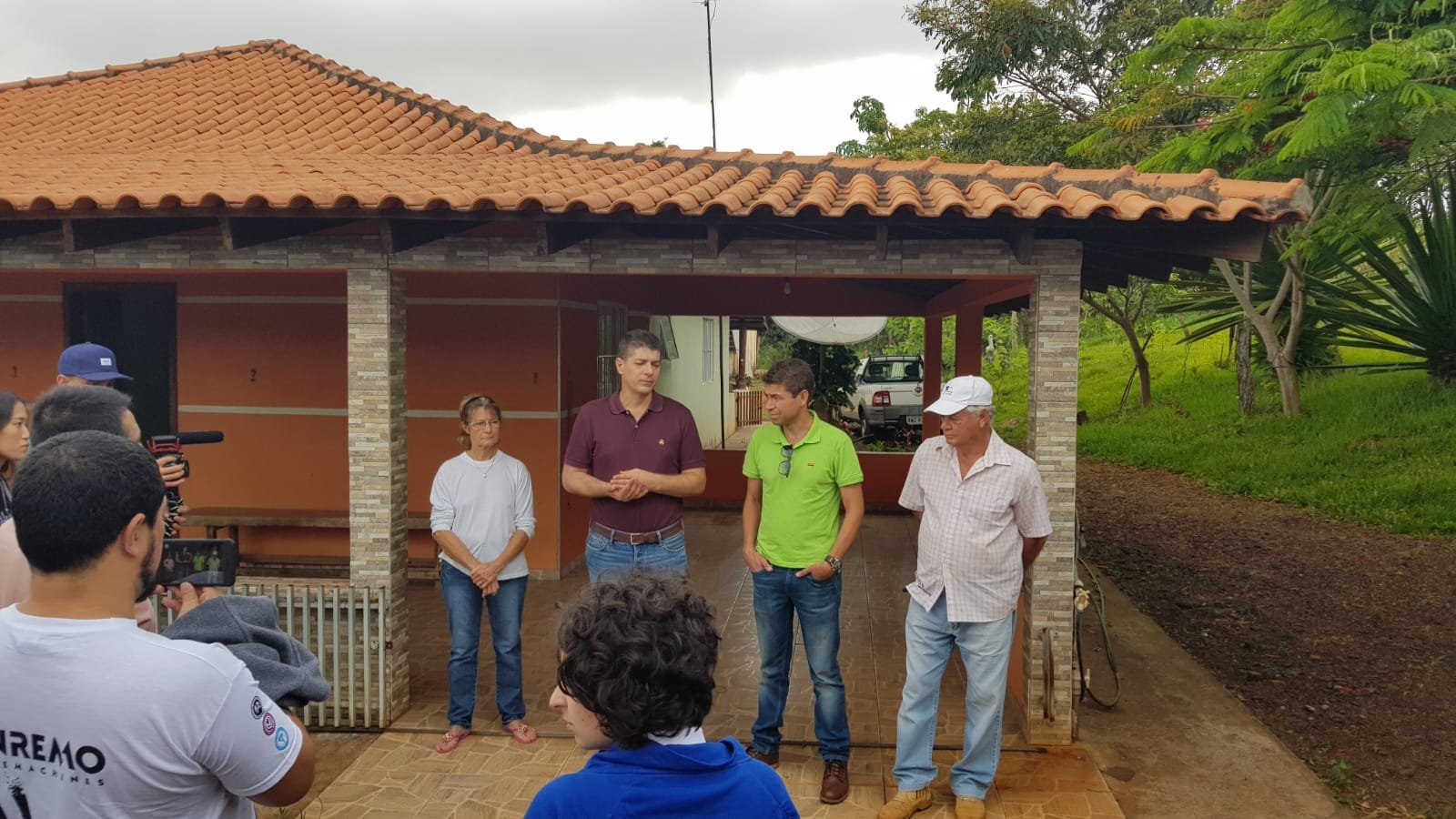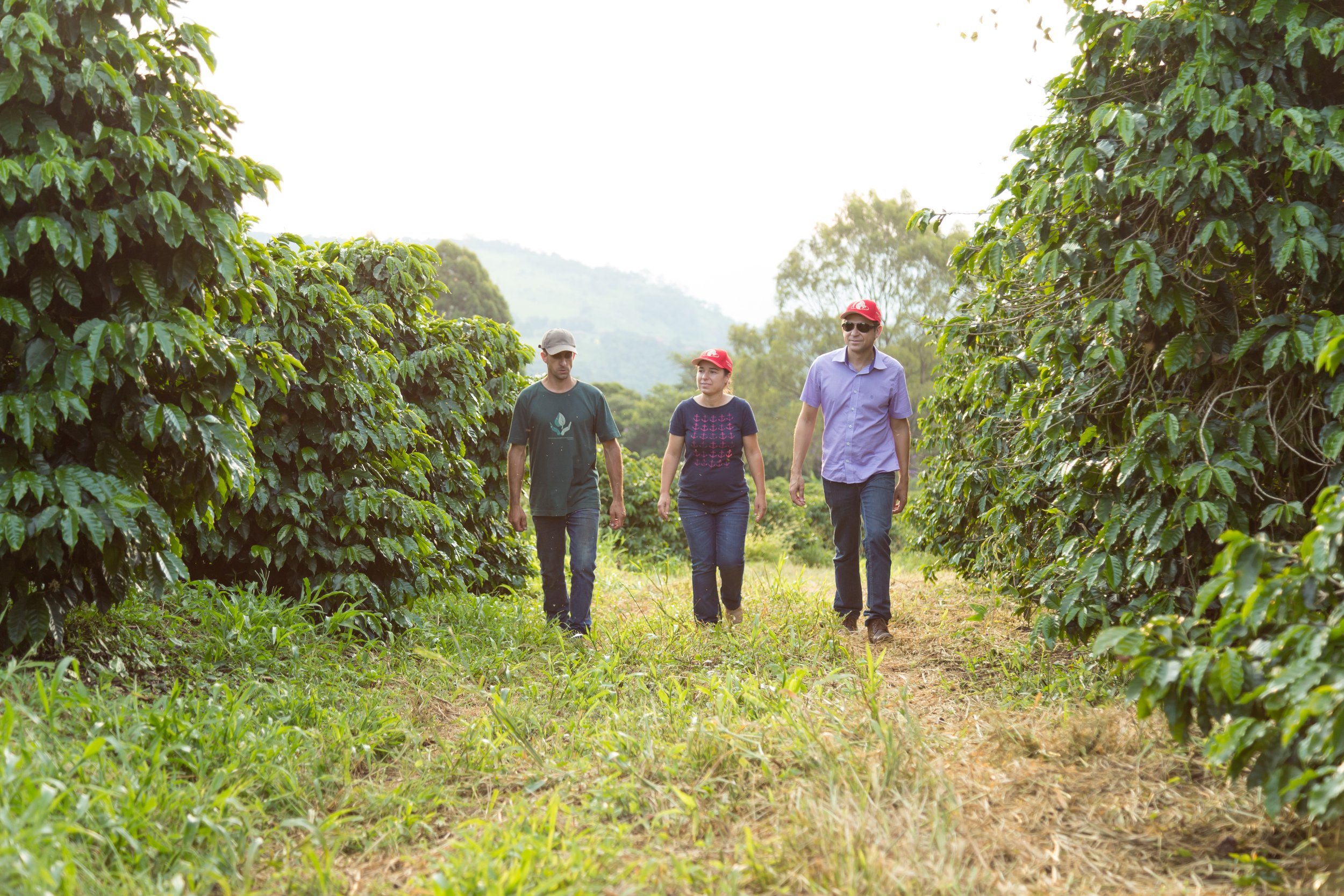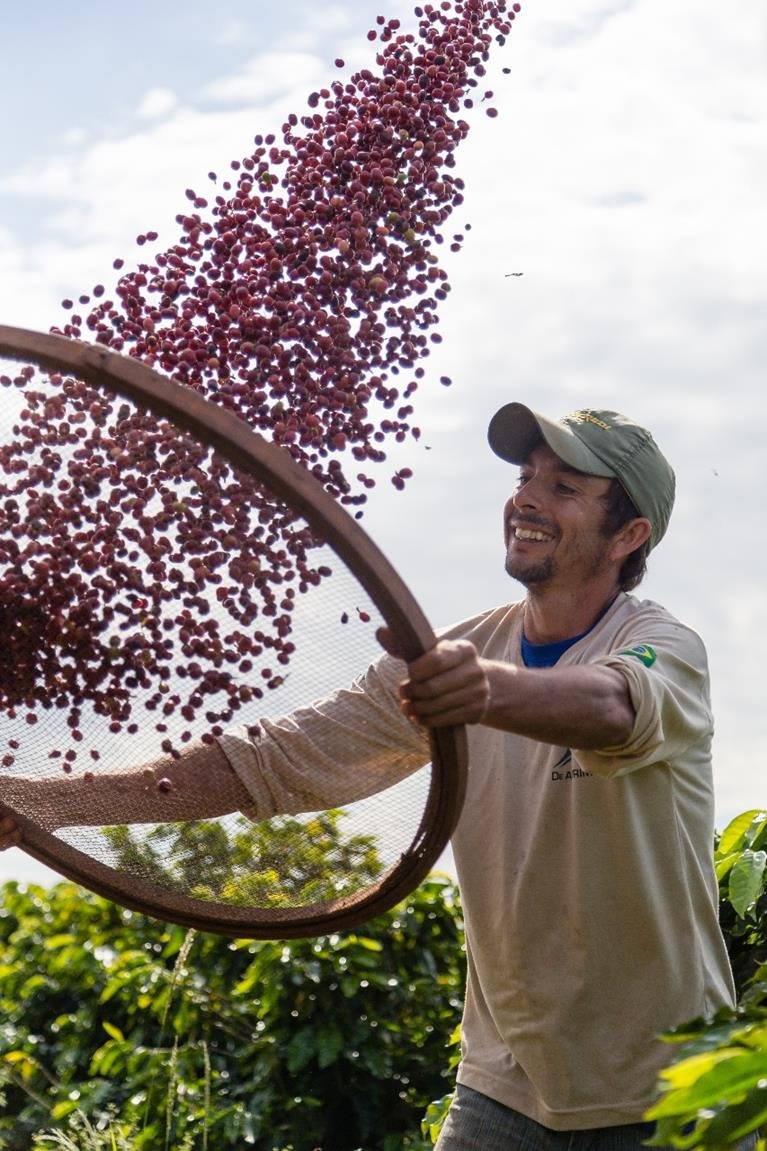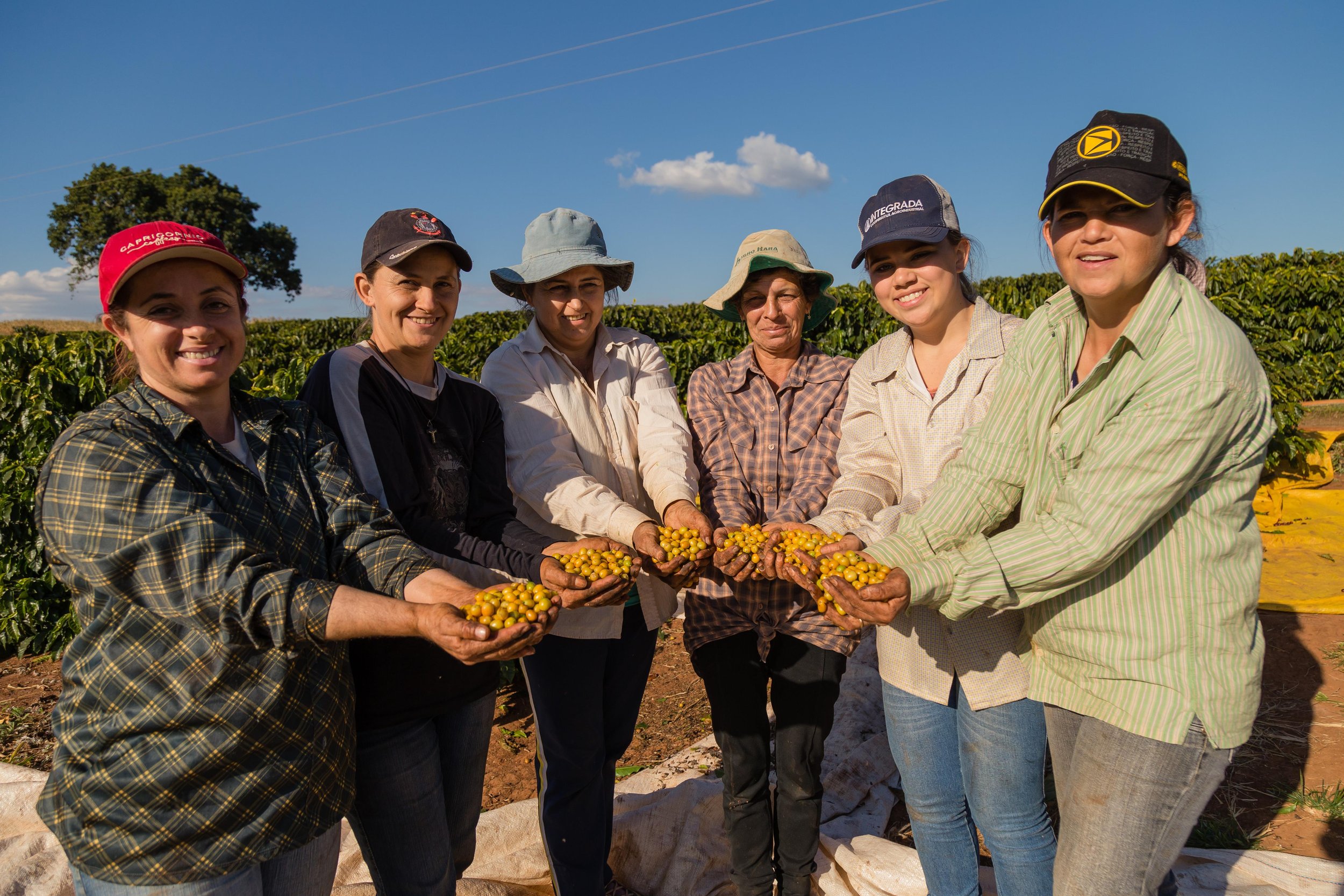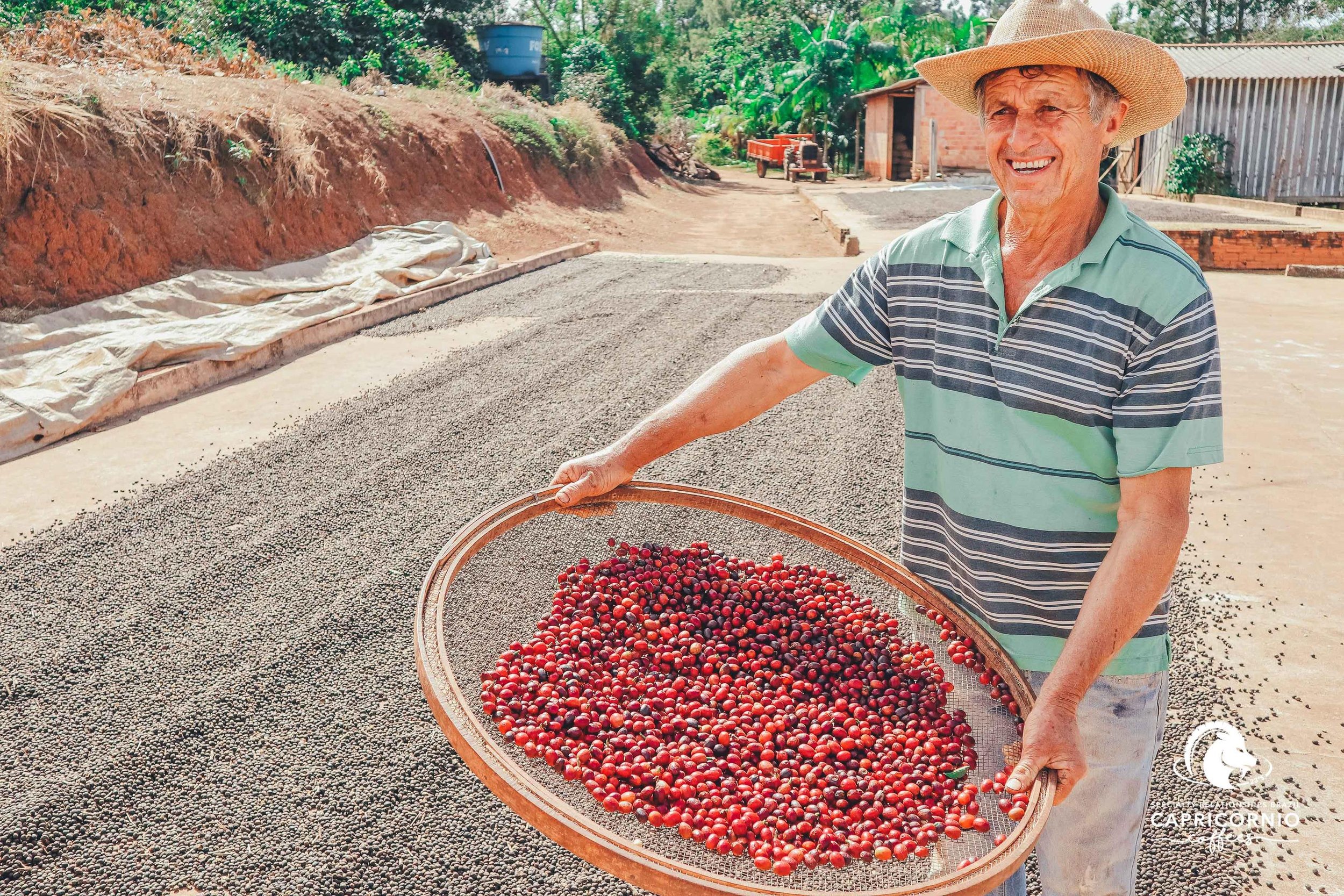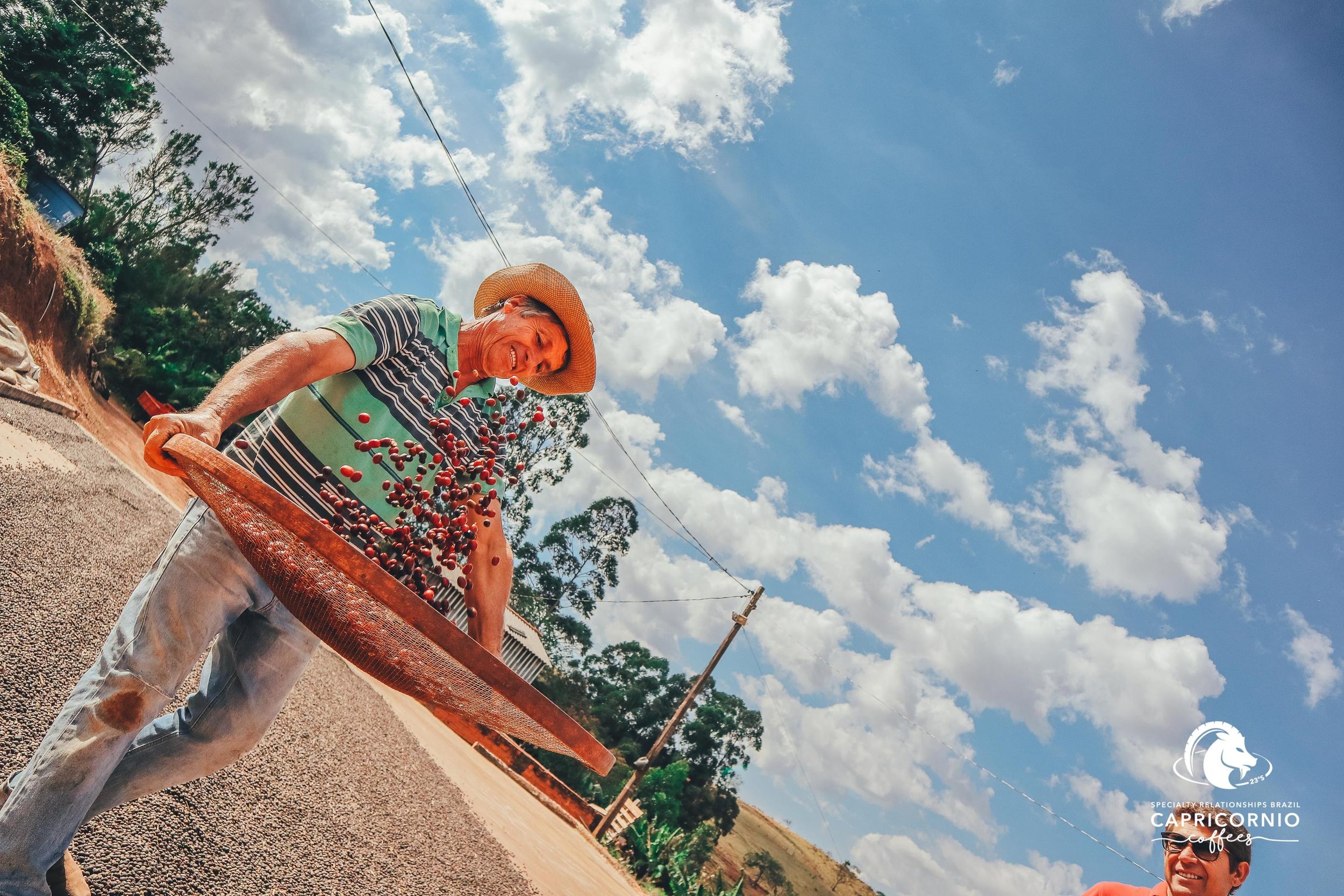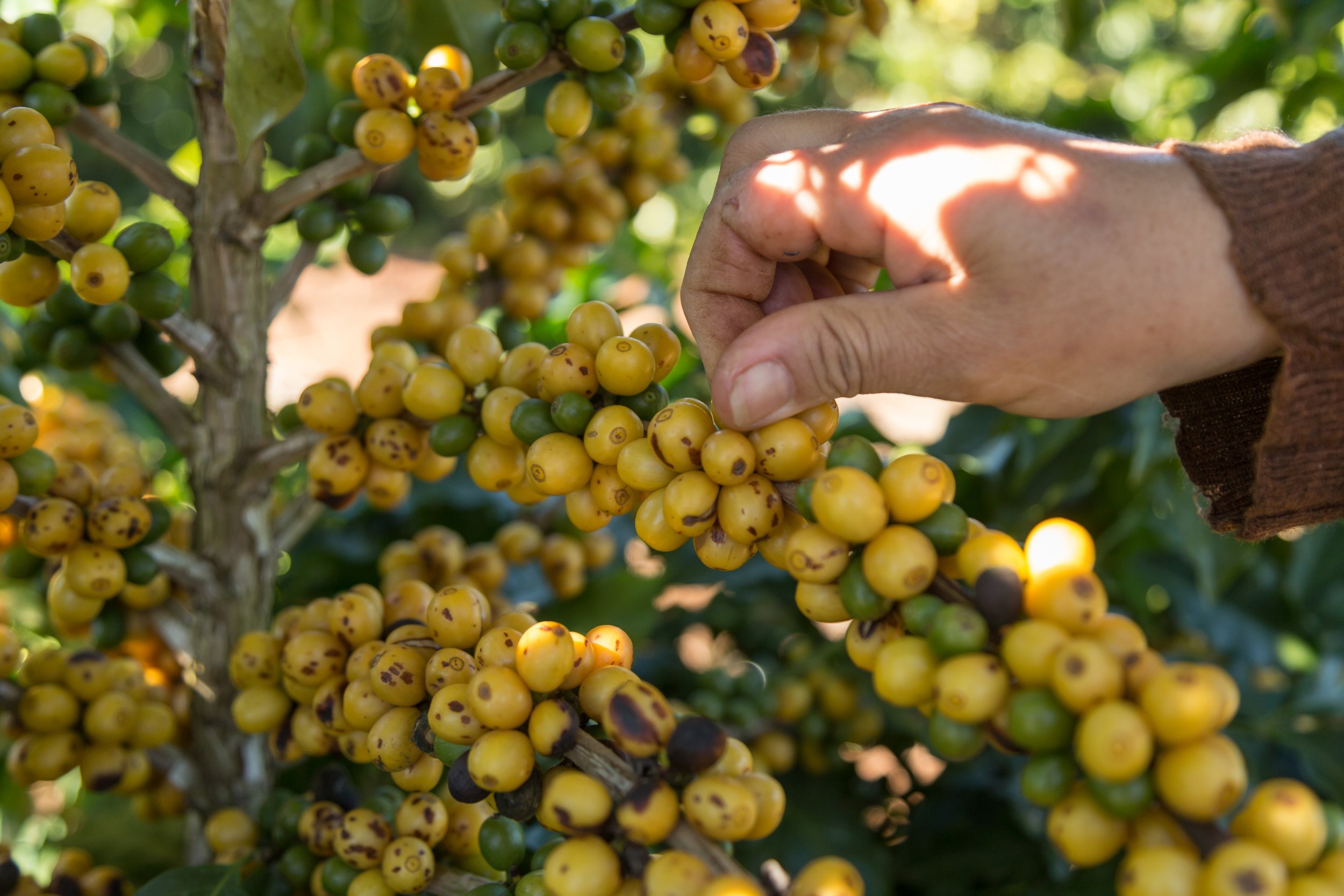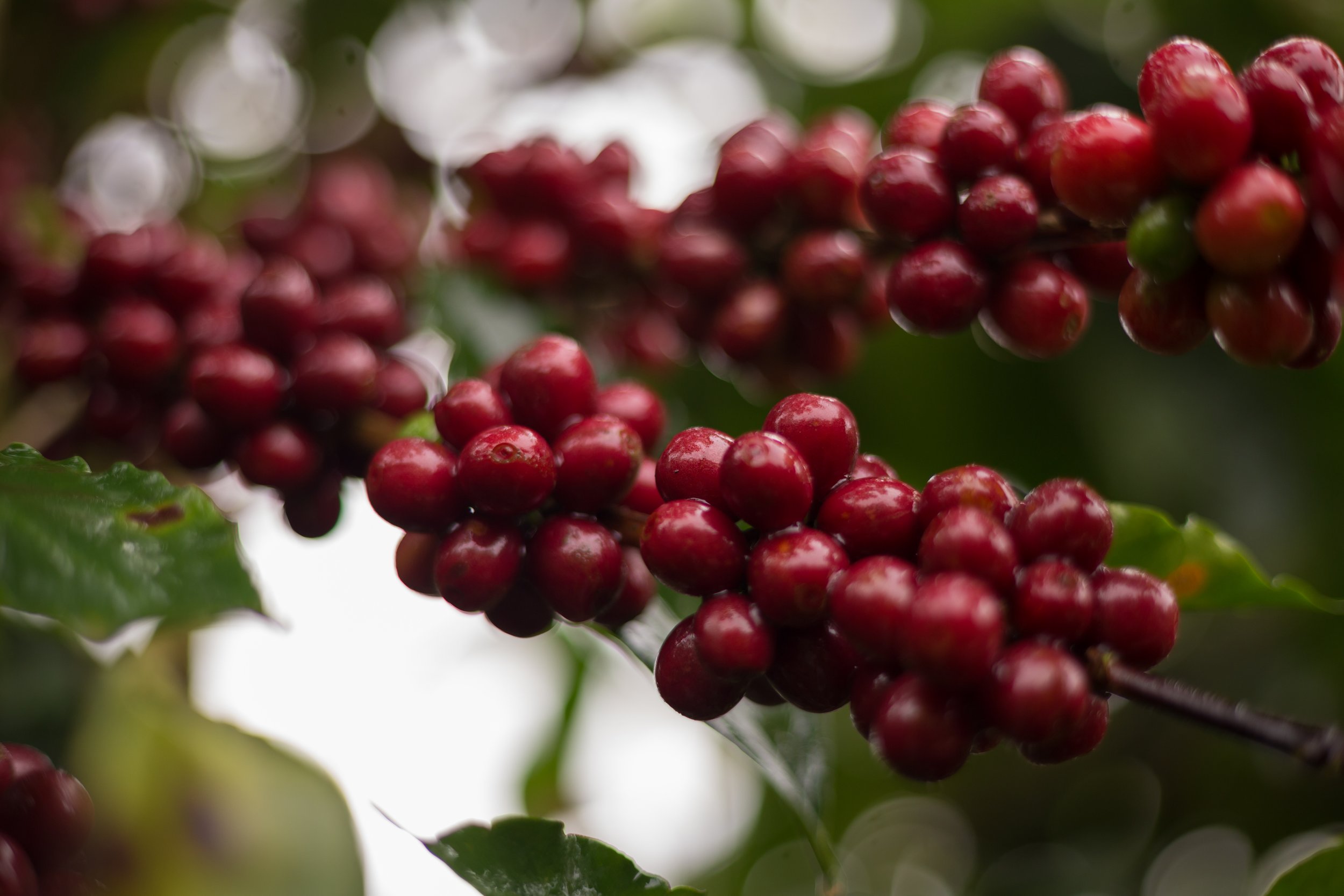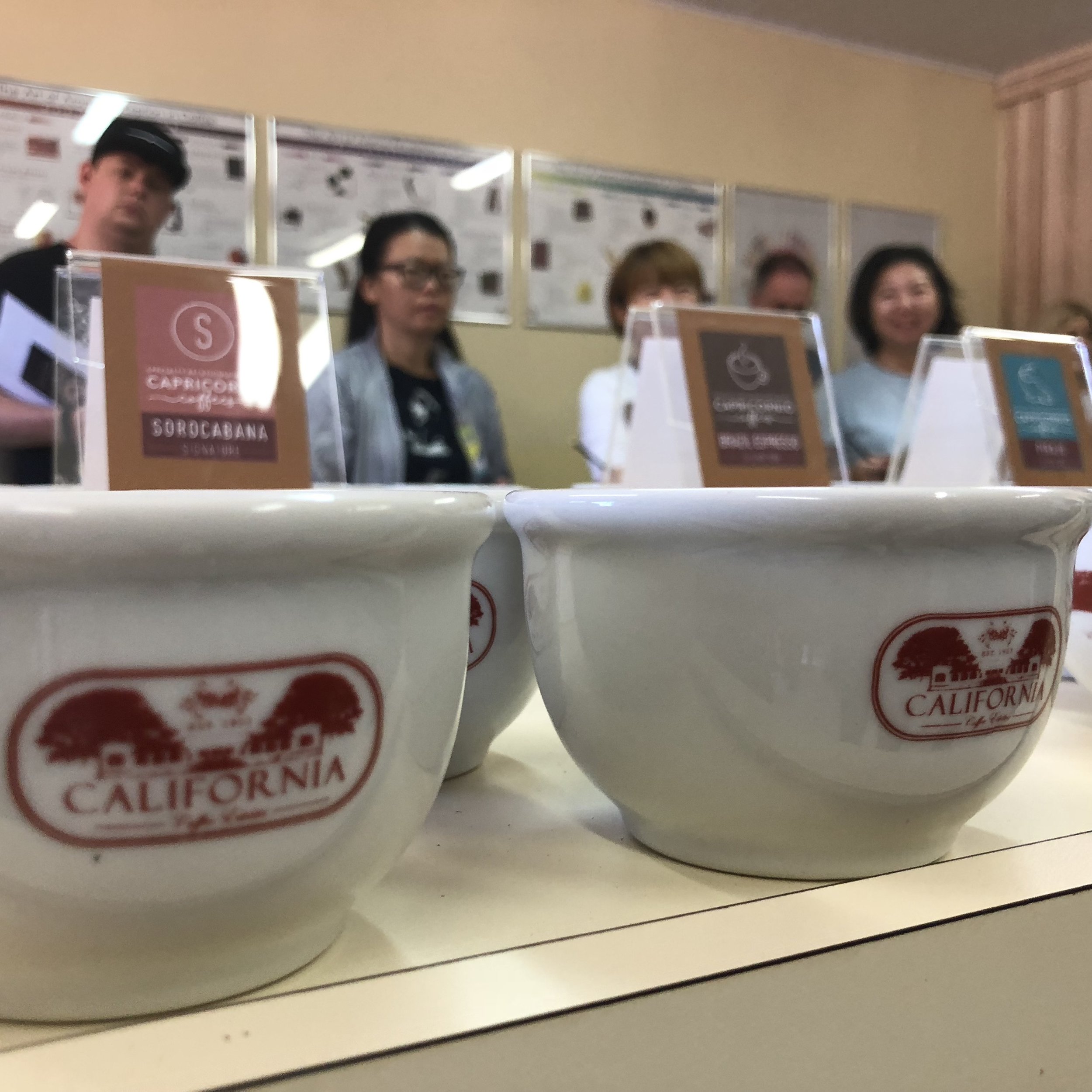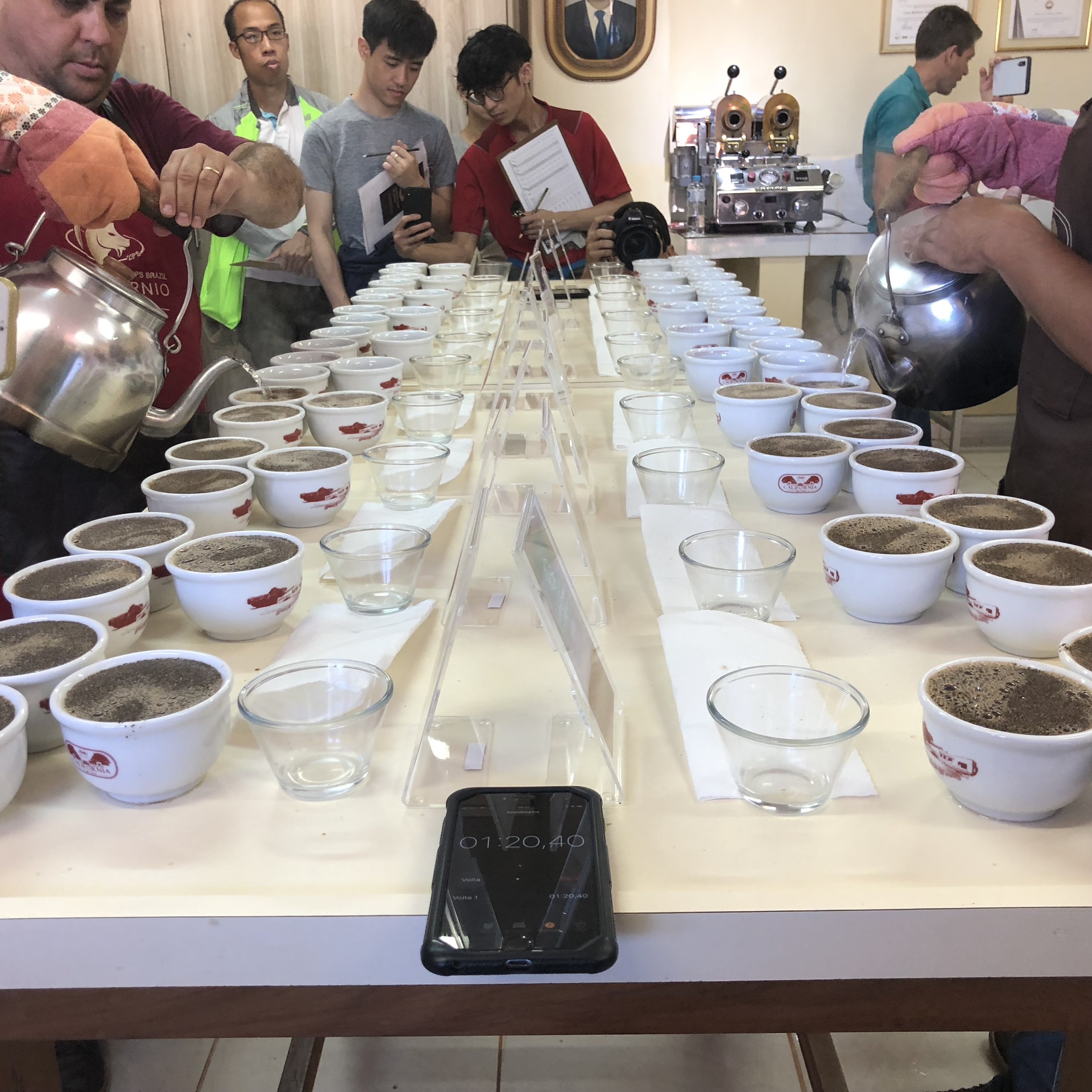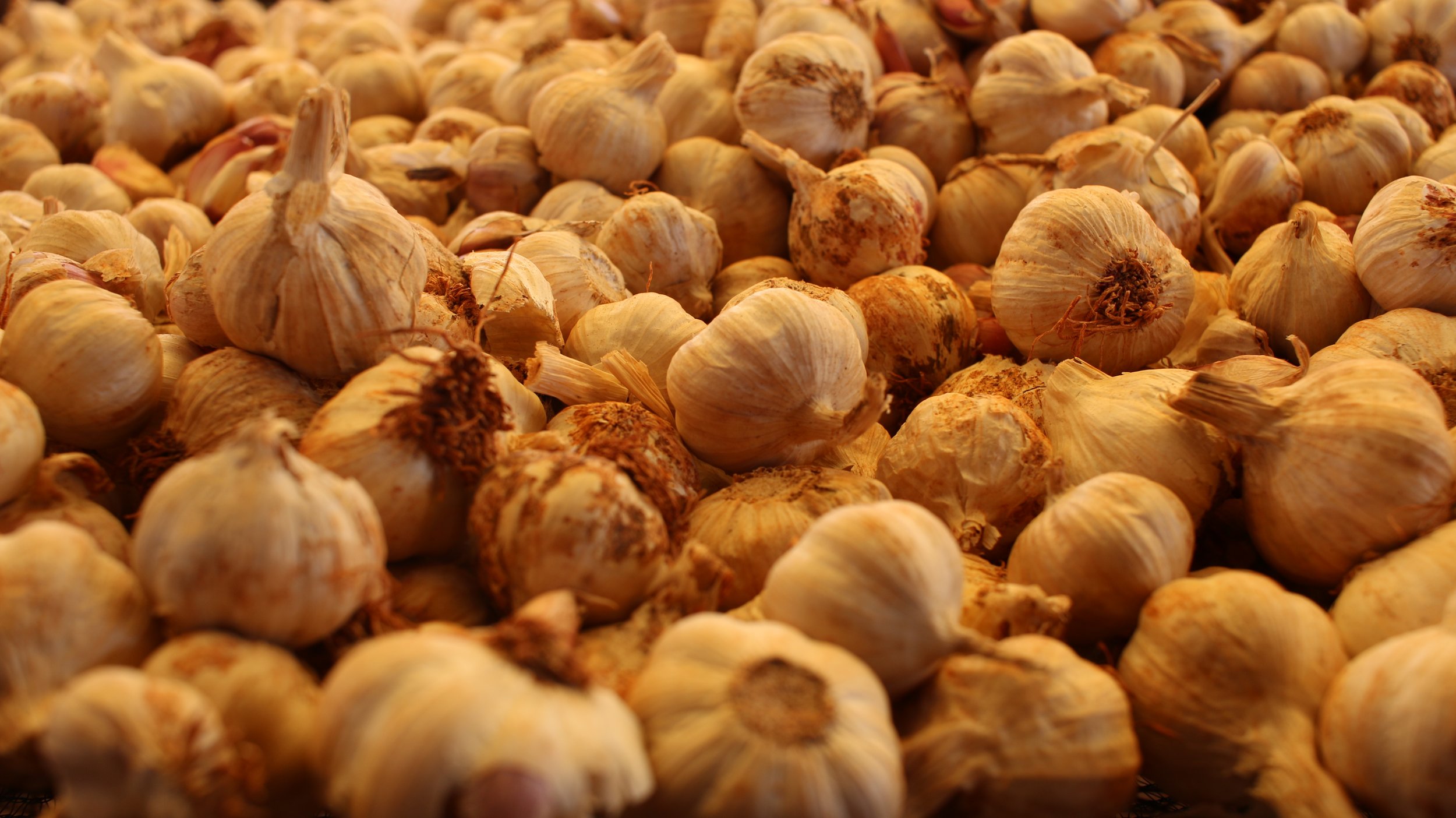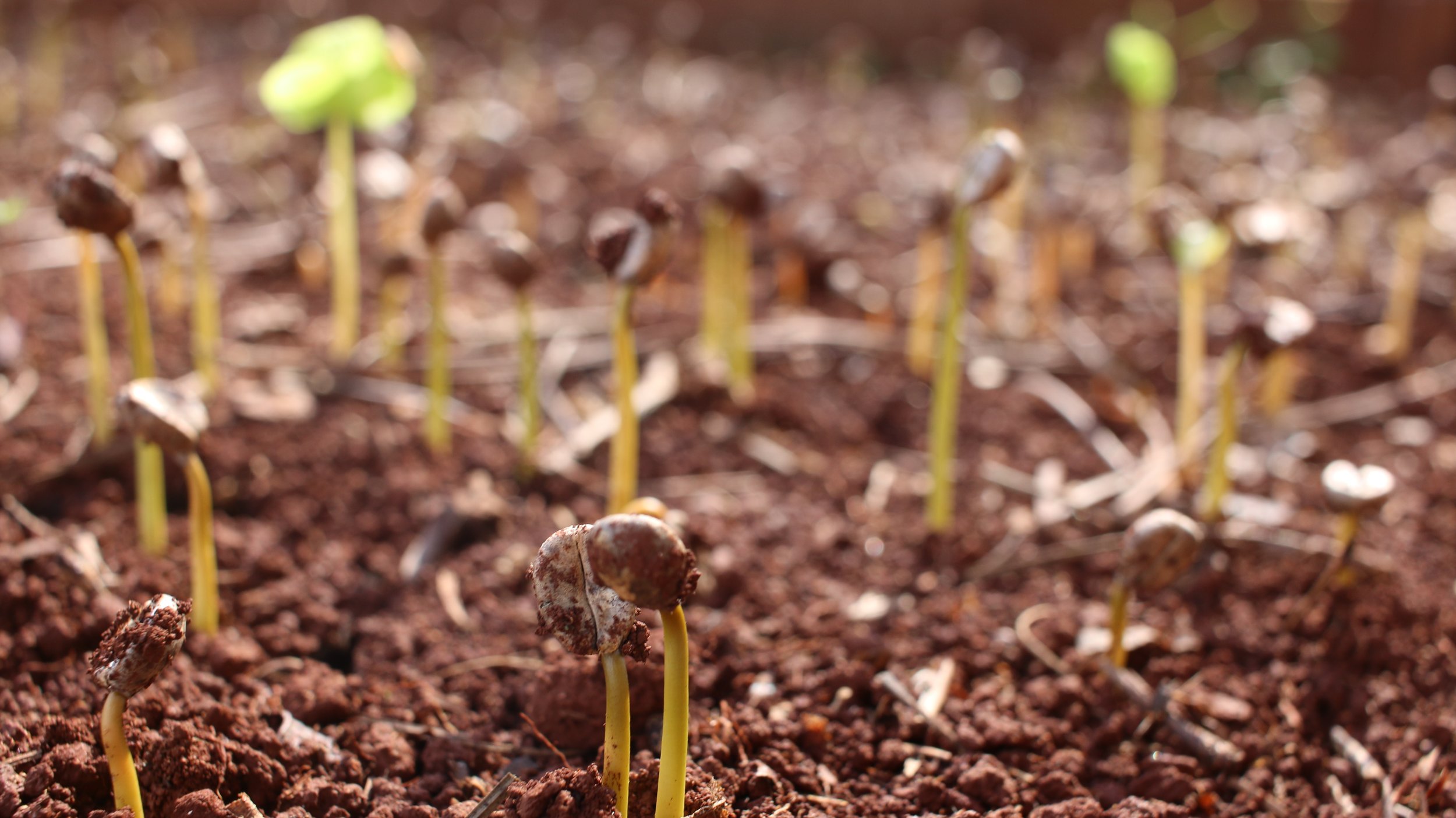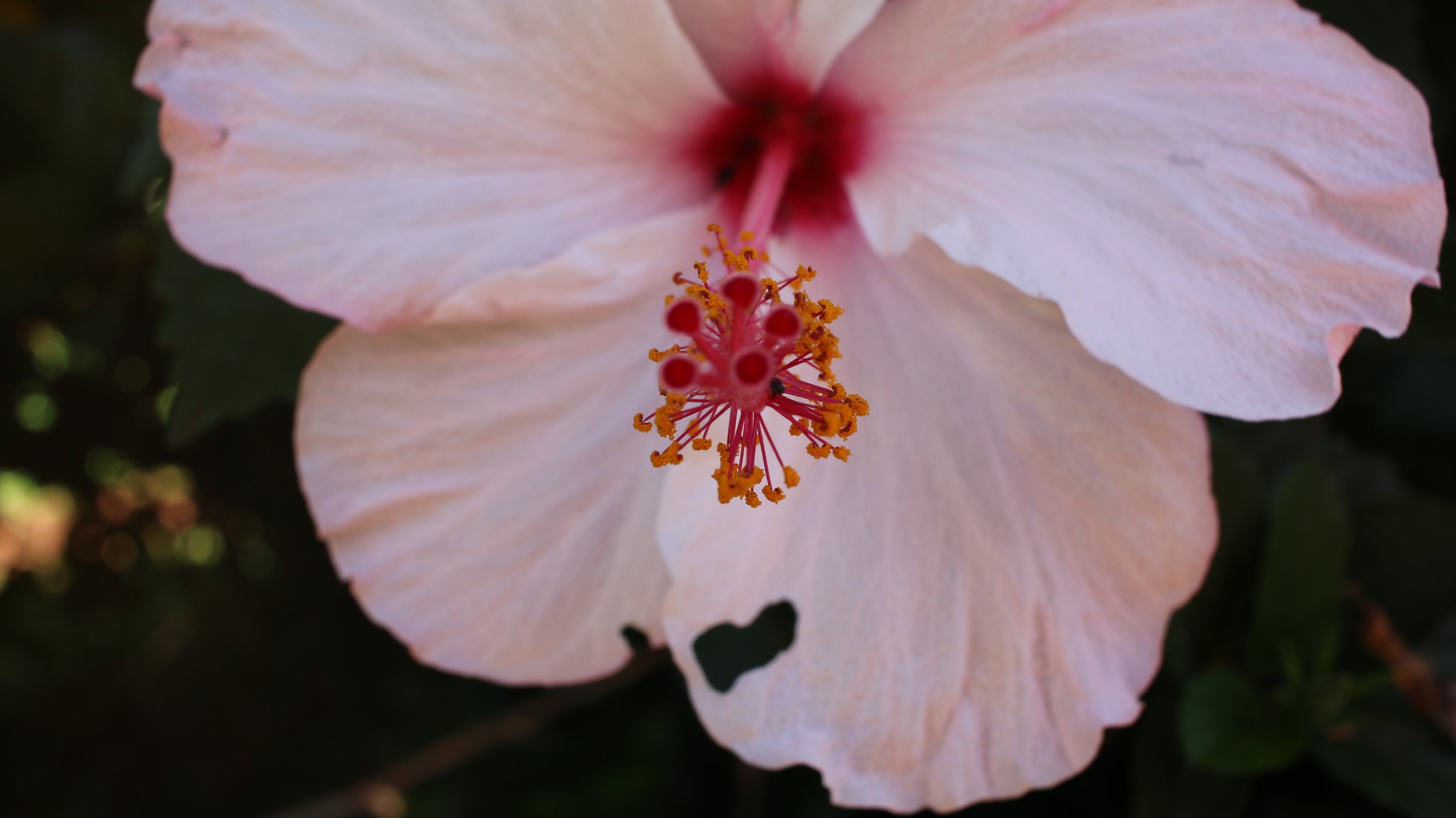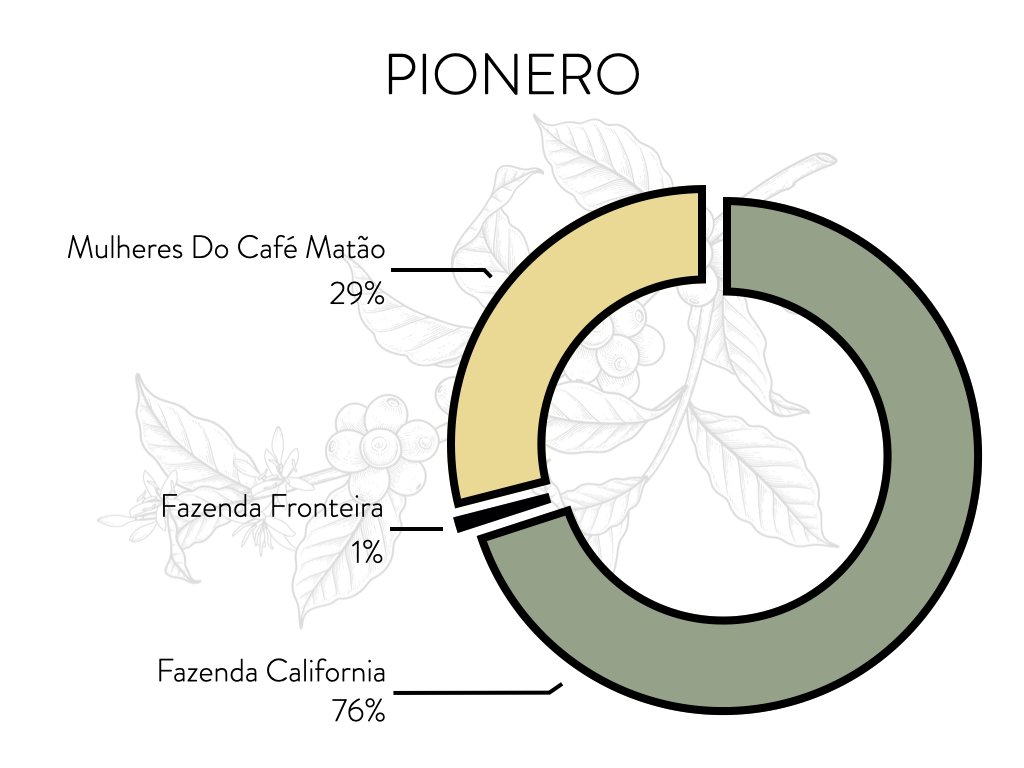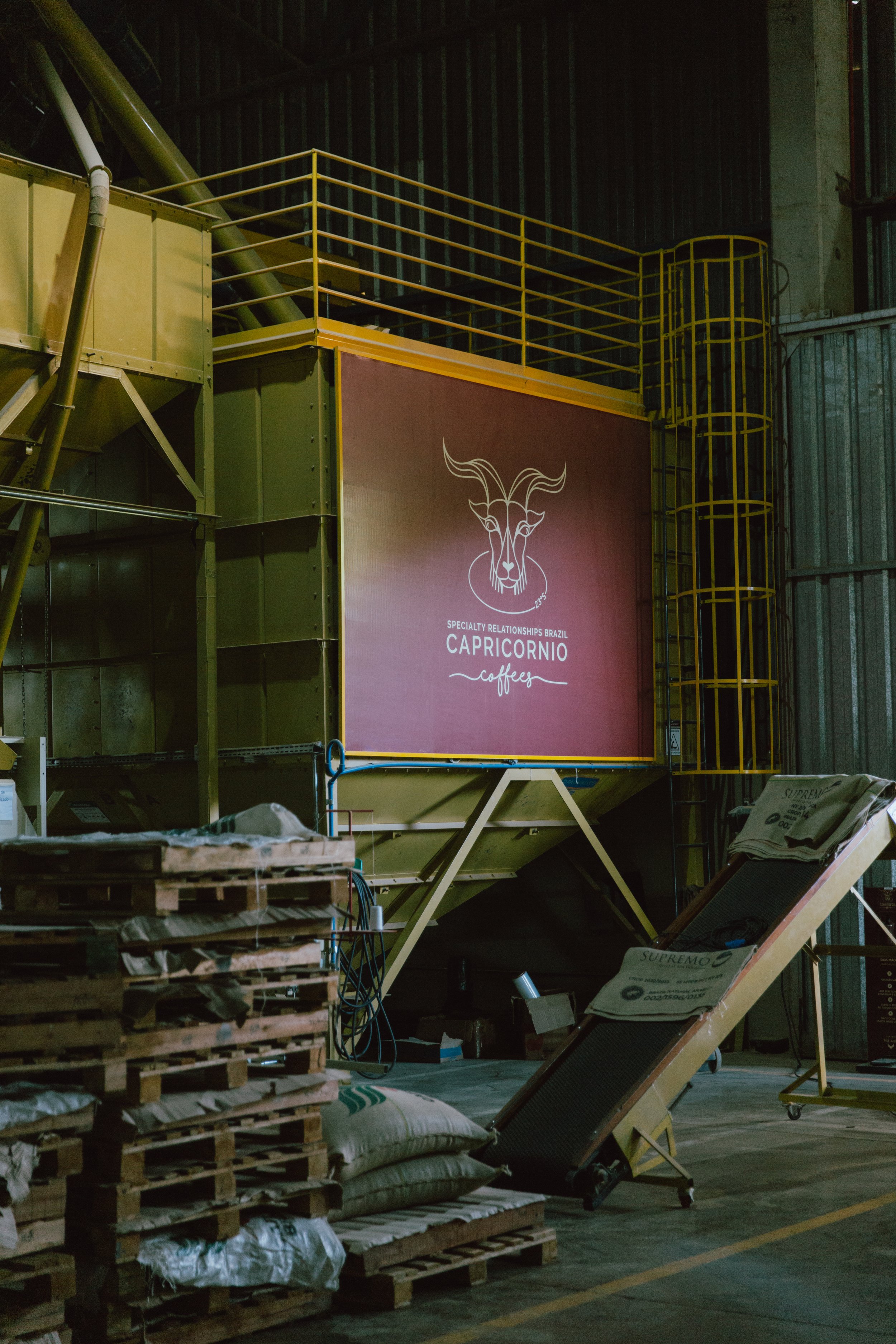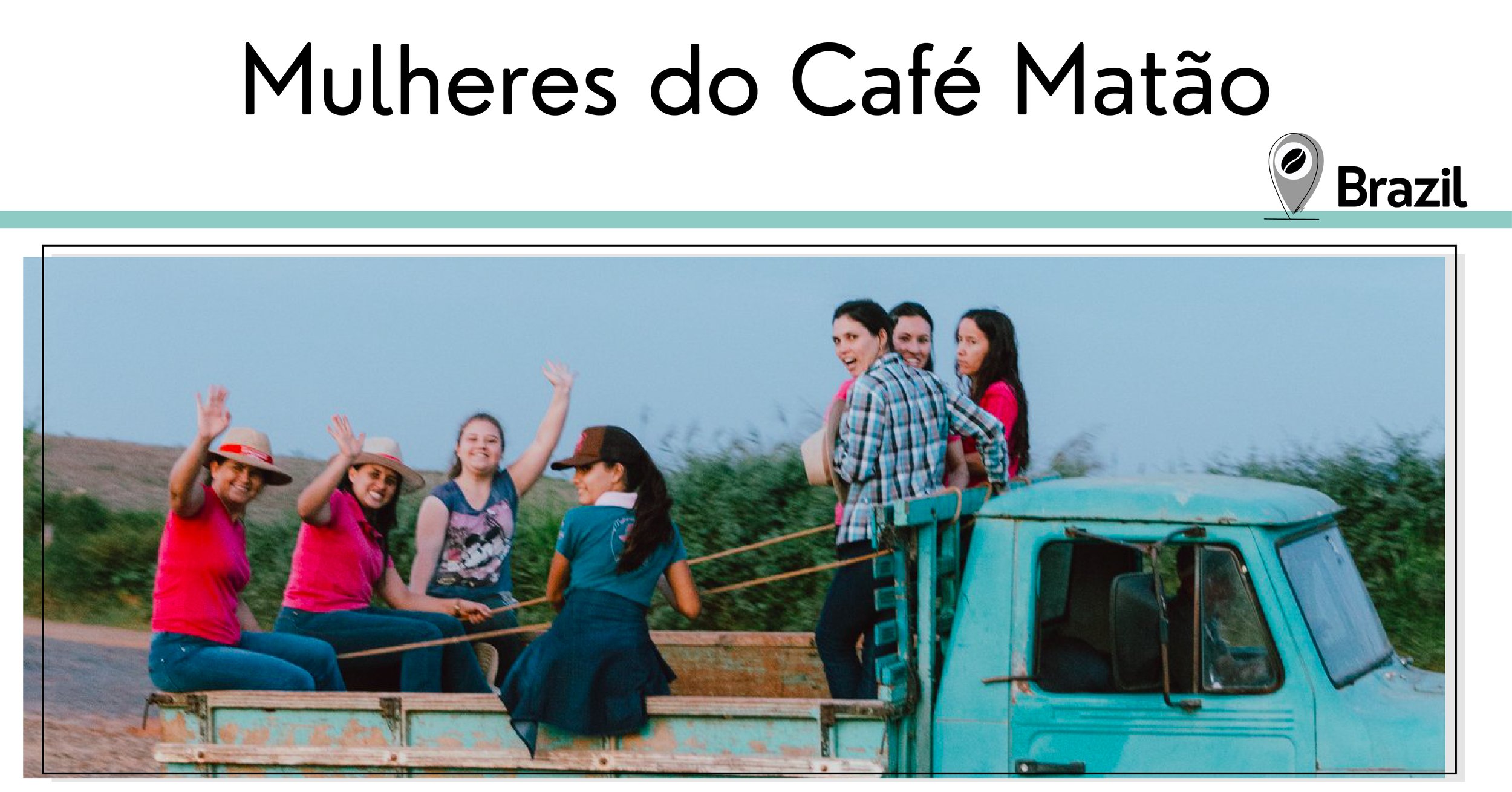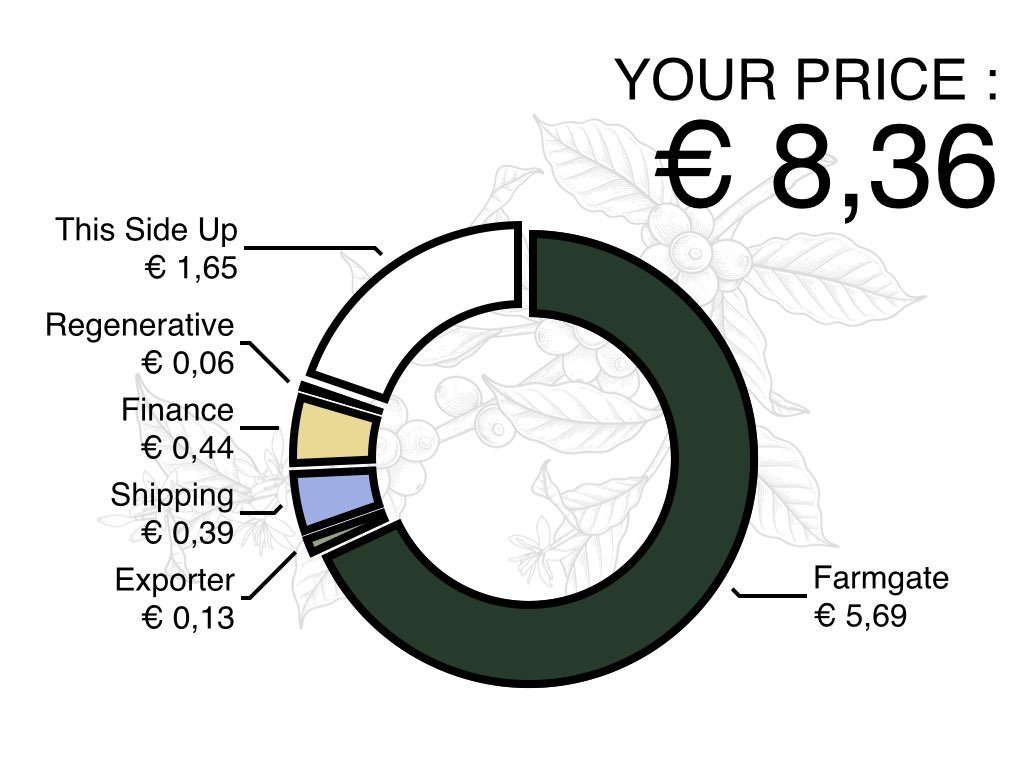A NEW TAKE ON BRAZIL
Honestly, Brazil had never been on our minds as a potential origin for This Side Up. We didn't think our mission of helping smallholders market their coffees would fit in such an established coffee industry. However, Luiz Saldanha and his partners captured our imagination. They established Capricornio to breathe new life in five regions in the southern states of Paraná and São Paolo, which until the 1960s, were one of the country's most vibrant coffee producing regions. Due to terrible frosts and the rise of the major coffee regions up north, its production stagnated, leading many coffee farmers to move north, leaving their farms underdeveloped. Now, due to climate change, these regions have become attractive to farmers again, but hardly anyone saw specialty potential.
That is until Capricornio found 20 passionate farmers and started the Four Seasons project: they helped them turn their farms into modern, ecologically sustainable farms and process their coffees to the highest standards. Now, they have started to show what these coffee regions have to offer the specialty coffee world. Because of its uniquely low latitude (around the tropic of Capricorn at 23ºS), coffee here endures more stress while developing. This leads to large, slowly ripened cherries with surprisingly complex cup profiles, similar to what happens at higher altitudes.
Ever since 2017 when we started cooperating, we keep on discovering another Brazil through our partnership with Capricornio. Every time Maarten visits Brazil and witnesses the advancements they implement in terms of sustainability, agroecology, and gender equality, he comes back bewildered: Unparalleled regenerative alternatives, the country’s highest employment standards and their tireless work to spread their knowledge throughout their network are just some of the reasons why we are blessed to have Capricornio as our largest origin partner.
These are our partners in the Capricornio network.
Two estates at the forefront of intercropping, reforestation, microbial research, and coffee processing experimentation. Two cooperatives are working hard to bring better opportunities to the region.
SÃO JERÔNIMO DA SERRA
workers: 10
trees: between 15.000 and 18.000 (each)
hectares: each farmers has from 2 to 10 ha
MULHERES DO CAFÉ MATÃO
workers: 22
trees: 2.800 and 3.000 (each)
hectares: each farmer has between 1 and 2 ha
Our direct link is with Capricornio, who links our roaster partners to the right growers in their Four Seasons project through blended Signature lots, single estate lots and various specially processed microlots. Capricornio is the ultimate example of a force for good for an entire producing region by understanding roaster needs perfectly.
Traceability
You can find all the signed contracts and shipping documents that we made with Capricornio since 2021 below (Google Drive).
2017: We start importing our first signatures from Brazil, changing the outreach of This Side Up completely. For the first time in our history, we offered staple coffees that many our trusted clients came to rely on.
2018 : Luiz offers a presentation about “Adapting to your Market” in the Producer Crossover event in Amsterdam. The special fermentation lot “Honey Moon” is used in the World Championships as a competition coffee. We continue promoting Signatures in Europe, with great success.
2019 : experienced a significant increase in demand for Signature lots, making Capricornio our biggest supplier.
2020 : Maarten visits Fazenda Fronteira, the neighboring Fazenda 7 Senhoras, and the big estate Morada da Prata in the Alta Mogiana region. The variety of farm sizes and company types gives even more color to the Signature blends, making the flavour stability even more impressive.
2021 : a heavy drought hits the coffee lands of Brazil in the middle of the 2020/2021 season; three frost waves followed during the harvesting period. The production went down 40%, compared to last year’s quantities, and the frost waves hit an average of 10 to 15% of the coffees trees in the Paraná, São Paulo and Minas Gerais states, Some farmers had losses up to 80%. Nonetheless, the relationship with This Side Up and Capricornio proved to be strong, with secured quantities, no defaulting on contracts happened.
2022: we develop Ellen Fontana and São Jerônimo lines; our c-price strategy is put into action; TSU obtains its own exclusive “Relationships” line. We celebrate that Luiz gets elected to the board borad of SCA (Specialty Coffee Association) as the first farmer in history. At the same time, Capricornio is awarded as a Great Place to Work.
2023: Visit to Capricornio by the team and some of This Side Up’s longest roasting partners. Established an elaborate project for expanding the regenerative practices of Fazenda California to our other partner farms from the 0,06 regenerative premiums of the last years.
Our QC’s Flavour impressions
Overall, this season feels very blissful in its diversity.The magic of Capricornio is that they are able to capture the full spectrum of possible flavours of coffee. From very calm and comfy notes of milk chocolate, nougat and raisins to a tropical fruit pallate with the most sparkly and playful acidity. Surprisingly pretty much all the lots carry a very rounded and creamy body.
Roasting advice
Capricornio advises a lower drop temperature for all their coffees compared to Brazils from further north such as Minas Gerais. As far as Ikawa goes, there is one profile to rule them all. After years in use, our Brazil profile works like a charm for pretty much all our lots. Of course there are always exceptions, so if you feel stubborn notes of peanuts and hay, please adjust both length (+10 sec) and end temperature (+1/2C) for better result.
Rod PR 431, Km 37-CX Postal 32, Jacarezinho-PR, Brazil
Photo Gallery
You may use these images freely to promote Capricornio.




